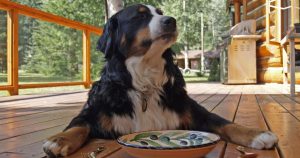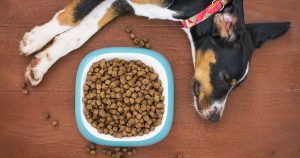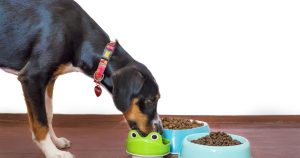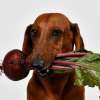Top 7 Best Dog Foods: Nutritious Choices for Your Furry Friend
Introduction
As a responsible pet owner, one of the most important decisions you’ll make is choosing the best dog food for your furry friend. A dog’s diet plays a crucial role in their overall health, energy levels, coat condition, and longevity. With countless brands and varieties available on the market, selecting the right food can be overwhelming. To help you navigate this critical choice, we’ve compiled a list of the top 7 best dog foods that cater to various dietary needs and preferences. Whether your dog is a picky eater, has allergies, or requires a special diet, this guide will provide insights into the best options available, ensuring your pet receives optimal nutrition and care.
Top 7 Best Dog Foods
-
Royal Canin Size Health Nutrition
Royal Canin Size Health Nutrition is designed to meet the unique needs of dogs of different sizes and breeds. With a focus on maintaining a balanced diet, this brand offers specialized formulas for small, medium, and large breeds. The food includes essential vitamins and minerals, promoting healthy skin, shiny coats, and robust immune systems. Royal Canin’s commitment to quality ensures your dog gets a scientifically backed diet tailored to their specific health requirements.
Key Features:
- Tailored nutrition for different sizes and breeds
- Supports healthy digestion and skin
- Includes precise nutrient balance for optimal health

-
Blue Buffalo Life Protection Formula
Blue Buffalo Life Protection Formula is crafted with high-quality natural ingredients to provide a nutritious and balanced meal for dogs. The formula is rich in real meat, whole grains, and garden vegetables, delivering essential proteins and antioxidants. Free from artificial preservatives and fillers, Blue Buffalo ensures your dog receives a wholesome diet that supports muscle development, immune health, and overall well-being.
Key Features:
- Real meat as the first ingredient
- No artificial preservatives or fillers
- Includes Omega-3 & Omega-6 fatty acids for skin and coat health
-
Hill’s Science Diet Adult
Hill’s Science Diet is a veterinarian-recommended brand known for its scientifically formulated dog food. The Adult formula is specifically designed to support the nutritional needs of adult dogs, providing them with the right balance of nutrients to maintain lean muscles, healthy organs, and a strong immune system. The food is enriched with antioxidants, vitamins, and minerals, making it an excellent choice for daily nutrition.
Key Features:
- Recommended by veterinarians
- Supports lean muscle and healthy organs
- Contains antioxidants for a strong immune system

-
Wellness CORE RawRev
Wellness CORE RawRev combines high-protein kibble with freeze-dried raw pieces to offer a taste dogs love and the nutrition they need. This grain-free formula is perfect for dogs with food sensitivities, as it focuses on real meat and nutrient-rich ingredients. The inclusion of raw, natural elements ensures optimal energy levels, healthy skin, and improved digestion.
Key Features:
- High-protein, grain-free formula
- Includes freeze-dried raw pieces for added nutrition
- Supports healthy digestion and energy levels
-
Purina Pro Plan Savor Adult
Purina Pro Plan Savor Adult offers a unique combination of taste and nutrition. Featuring real meat as the first ingredient, this formula includes a blend of high-quality protein and nutrients to support your dog’s overall health. The addition of probiotics aids in digestion, while Omega-6 fatty acids promote a healthy coat. Purina’s focus on quality ingredients ensures a complete and balanced meal for your pet.
Key Features:
- Real meat as the primary ingredient
- Contains probiotics for digestive health
- Promotes healthy skin and coat with Omega-6 fatty acids

-
Taste of the Wild High Prairie Canine Recipe
Taste of the Wild High Prairie canine recipe is inspired by the natural diet of wild dogs, providing a unique blend of real roasted meats, fruits, and vegetables. This grain-free formula offers high digestibility and essential nutrients for active dogs. Rich in antioxidants and prebiotics, Taste of the Wild supports a healthy immune system and vibrant health.
Key Features:
- Grain-free with real roasted meats
- Includes fruits and vegetables for antioxidants
- Supports immune health and digestion
-
Merrick Grain-Free Texas Beef & Sweet Potato Recipe
Merrick Grain-Free Texas Beef & Sweet Potato is a premium dog food that focuses on real deboned beef as the primary ingredient. This formula is rich in protein and essential nutrients, ensuring your dog receives the best nutrition. With added glucosamine and chondroitin, it promotes joint health, making it an excellent choice for active or aging dogs.
Key Features:
- Real beef as the main ingredient
- Grain-free with sweet potatoes for carbohydrates
- Supports joint health with glucosamine and chondroitin
Harmful Foods for Dogs
While providing your dog with a nutritious diet is essential, it’s equally important to be aware of foods that can be harmful to them. Some human foods and ingredients can pose serious health risks to dogs. Here are some foods that should be avoided:
- Chocolate: Contains theobromine, which is toxic to dogs and can cause vomiting, diarrhea, rapid breathing, and even death.
- Grapes and Raisins: Can lead to kidney failure in dogs, causing symptoms like vomiting, lethargy, and loss of appetite.
- Onions and Garlic: These can damage a dog’s red blood cells, leading to anemia. Symptoms include weakness, vomiting, and breathing difficulties.
- Alcohol: Even small amounts can be toxic to dogs, causing vomiting, diarrhea, coordination problems, and potentially leading to a coma or death.
- Caffeine: Found in coffee, tea, and some sodas, caffeine can lead to restlessness, rapid breathing, heart palpitations, and muscle tremors in dogs.
- Avocado: Contains persin, which can cause vomiting and diarrhea in dogs. The pit can also pose a choking hazard.
- Xylitol: A sugar substitute found in sugar-free products like gum and candy, xylitol can cause insulin release, leading to hypoglycemia (low blood sugar) in dogs, which can be life-threatening.
By being aware of these harmful foods, pet owners can take preventive measures to protect their dogs from accidental ingestion and ensure their safety.
Conclusion
Choosing the right dog food is vital for your pet’s health and well-being. The top 7 best dog foods listed above offer a variety of options tailored to meet different dietary needs, ensuring your furry friend receives optimal nutrition. Remember to avoid harmful foods that can jeopardize your dog’s health, and always consult with a veterinarian if you have any concerns about your dog’s diet. For more insights and expert advice on pet care, visit our website at blogwave.info, your trusted source for all things related to pets.
FAQs
-
What is the best dog food for puppies?
- For puppies, it’s essential to choose a food specifically formulated for their growth and development. Look for brands like Royal Canin Puppy or Hill’s Science Diet Puppy, which offer balanced nutrition and essential nutrients for young dogs.
-
Can I feed my dog human food?
- While some human foods are safe for dogs, such as plain cooked chicken, carrots, and rice, many can be harmful. It’s best to stick to dog-specific foods to ensure balanced nutrition and avoid potential health risks.
-
How often should I feed my dog?
- The feeding frequency depends on your dog’s age, size, and activity level. Puppies typically require three to four meals a day, while adult dogs usually do well with two meals a day. Always follow the feeding guidelines provided by your dog’s food manufacturer.
-
What should I do if my dog eats something harmful?
- If your dog ingests something potentially harmful, contact your veterinarian or an emergency pet poison helpline immediately. Prompt action can make a significant difference in your dog’s recovery.
-
Are grain-free diets better for dogs?
- Grain-free diets are beneficial for dogs with specific allergies or sensitivities. However, they may not be necessary for all dogs. Consult with your veterinarian to determine if a grain-free diet is suitable for your pet’s needs.



